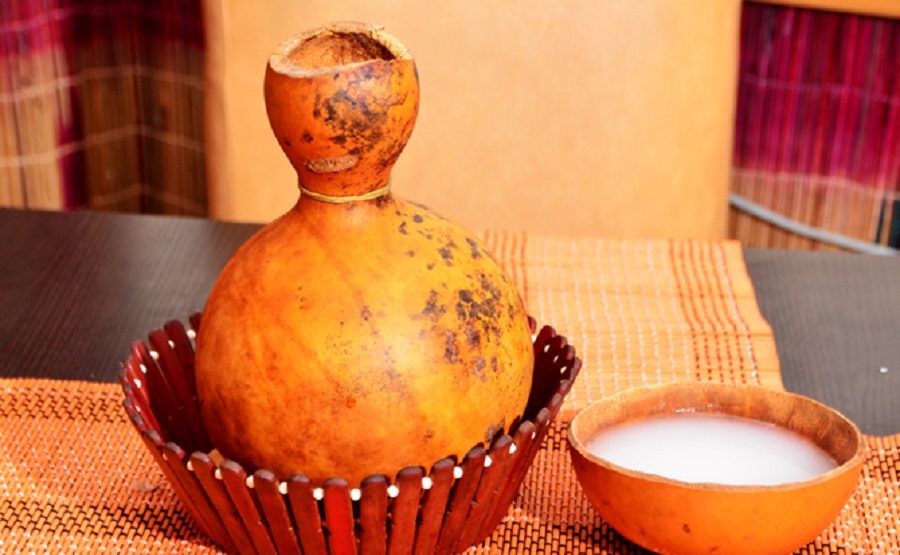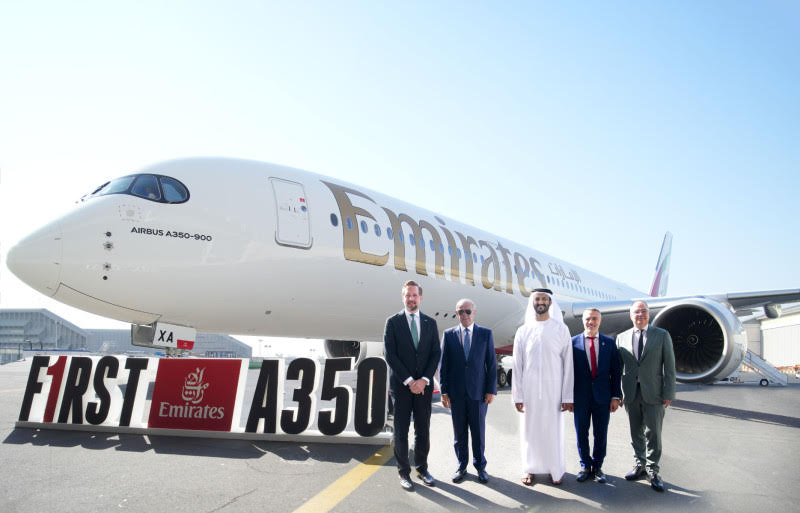Travel/Tourism
Using Palm Wine Exportation To Attract Foreign Tourists

By Olukayode Kolawole
I arrived in the forest. I met the forest lord
He offers me bush meat
I am not here to hunt for bush meat
I journey deep down the ocean
I met the queen of the coast
She offers me fish to eat
I am not here to fish either
On my way back home
I met the palm wine tapper
He gave me some wine to drink
Sozzled and blotto I got home
And then I forget my sorrow
– David Adeyemo –
Nigeria is a country blessed with so many natural and agricultural resources. We are so much blessed that we seem to have these resources in excess as compared to almost all the countries in the African continent. Whether we’re using these resources to our advantage or not is a different ball game entirely. I recently stumbled on United Nation World Tourism Organisation’s (UNWTO) website to check out some of the programmes it has lined up for the last quarter of the year. In the coming months, the apex tourism body will be organizing a wine tourism conference in collaboration with the Georgian National Tourism Administration. The press release on its website stated: “Georgia’s unique winemaking traditions date back 8,000 years and are considered by UNESCO as intangible heritage, making the country an ideal host for the Global Conference on Wine Tourism. The country’s recent success in attracting a growing number of tourists and its development of tourism products, branding and marketing, combine to present an excellent platform for sharing best practices, experience and knowledge.” Wine tourism, did you say?
What wine is better than our locally tapped palm wine? If you have ever been served palm wine in any part of Nigeria especially the west and the east regions, you would be able to testify that nothing beats the taste of our freshly tapped unadulterated palm wine. On the other hand, what beats my imagination is the fact that we’re not doing anything grand with this quintessential alcoholic beverage beyond just consuming it locally and may be a few exportations. We can still do so much more. And surprisingly, there is a huge market for this natural product abroad. The revenue generated every year locally is nothing compared to what we can earn as a country if we intensify exportation of this product. The product has the potential of generating millions of dollars every year if done properly and supported with the necessary marketing efforts.
Palm wine has many names it is known by depending on the region. For instance, in Nigeria it is called emu, oguro, nkwu enu, nkwu ocha, palmy, or tombo liquor. Palm wine is indeed indispensable in many ceremonies in some parts of Nigeria especially among the Ibo people. Guests at weddings, birthday celebrations and funeral wakes are usually served charitably. For instance, a young man who is going for his first introduction at his in-laws place is required to go with palm wine. Depending on the customs of various towns, there are specific gallons of palm wine required for such an event.
Sometimes, it can also be used as a healing agent. It is often mixed with medicinal herbs to cure a wide variety of physical illnesses. Many drinking sessions will often begin with a small amount of palm wine spilled on the ground as a token of respect to deceased ancestors. Women as well as men enjoy drinking palm wine. Although the former consumes it less often in public.
Palm wine tapping is both an art and a science. Ask our Ibo brothers in the East and the Yoruba farmers in the West. It takes certain specialized skills that are learnt over a course of time to be able to master the art and perfect it. It commands more respect than any other alcoholic beverage among the rural and urban dwellers in Nigeria. There are also other alcoholic beverages that are derivatives from fermented palm wine while some others such as Ogogoro (dry gin), Burukutu are locally brewed drinks made from guinea corn or wheat. There are different types of palm wine but the type that’s sourced from either Raffia palm or palm oil tree are the original palm wine. Although, they are a bit more expensive and considered the king of all local wines.
Here are a number of fun facts about palm wine in Nigeria: (1) Palm wine is usually the official drink for all traditional marriages. In fact, it’s in most times included in the bride price list (a list of items to be procured by the groom to-be before a woman is given out in marriage by her family). (2) Getting unadulterated palm wine is indeed very difficult; most are mixed with other drinks by greedy sellers to maximize profit. (3) In the rural areas, palm wine often accompanies (and usually the best drink) pepper soup, Ugba, Nkwobi and Isi Ewu (goat head).
Having looked at the great potentials palm wine wields and the inherent implication on our culture as a country, it is a course of wisdom to create festivals or conferences that will bring tourists from other countries to come into our country, considering the fact that we’re at a point where growing our hospitality and tourism industry is especially important. Organizing an annual Palm Wine Festival, or something of that sort will boost the inflow of tourists into our country which will directly contribute to the economy. For instance, more jobs will be created, more hotels, including those on Jumia Travel platform will experience increase in patronage, airlines will make more sales and several other attendant benefits. A typical festival will need about three to six months to plan and will gulp between N4m – N10m. But the ROI will likely triple the expenditure and once this becomes a yearly event, an additional source of income will definitely emerge.
Beyond hosting a palm wine festival or conference or whatever nomenclature we eventually come up with, I think it’s also important for public private partnership to promote, on a large scale, the exportation of unadulterated palm wine to neighbouring countries and major European countries. We stand to benefit immensely from its export. We only need to get the packaging right and voila, the orders will start coming in. However, before we start intensifying commercialization of this product, local promoters should make conscious effort to get as many Nigerians as possible to start making demands. Thankfully, ecommerce has changed the way everything is done. It’s not improbable for a seller to open a platform on any of the online marketplaces and support it with appropriate publicity. We will go beyond local consumption to selling to other continents. But first, we need to grow local demands for the product.
The journey to building our country to Africa’s number one tourist destination is filled with many road bumps. But every step we take should always be in the right direction. Else, things might just fall apart.
Olukayode Kolawole is the Head of PR and Marketing at Jumia Travel NG.
Travel/Tourism
Emirates Unveils Airbus A350-900 in Dubai

By Aduragbemi Omiyale
One of the leading airline operators, Emirates Airline, has officially unveiled its first Airbus A350-900 at an exclusive event showcase in Dubai attended by aerospace partners, government officials and dignitaries, members of the media, as well as aviation enthusiasts.
The Emirates A350 features three spacious cabin classes, accommodating 312 passengers in 32 next-generation Business Class lie-flat seats, 21 Premium Economy seats and 259 generously pitched Economy Class seats.
The latest onboard products reflect the airline’s commitment to delivering a premium passenger experience while optimising operational efficiency. The Emirates A350 is the first new aircraft type to join Emirates’ fleet since 2008.
Apart from its newly delivered A350, Emirates operates two other aircraft types around the world to 140 destinations – the widebody Boeing 777 aircraft and the iconic ‘double decker’ Airbus A380 aircraft.
The A350’s introduction will enable Emirates to expand into new destinations globally, including mid-sized airports unsuited for larger aircraft. The Emirates A350 will be delivered in two versions – one for regional routes and one for ultra long-haul routes.
The Emirates A350 takes technology to another level. Customers can now adjust their electric window blinds at the touch of a button.
The aerBlade dual blind system will feature in Business and Premium Economy Class offering two shaded options, and the aerBlade single blind systems will make a debut in Economy Class, with all blinds showing the Emirates Ghaf tree motif when closed.
Business Class on the Emirates A350 will feature 32 luxurious leather ‘S Lounge seats’, inspired by the Mercedes S Class for an exceptional travel experience. The A350 aircraft will feature brand new additions of wireless charging on the side cocktail table in Business Class, and in-seat lighting controls with 5 streams of light. The 1-2-1 seat configuration in the A350 Business Class ensures a very private, exclusive experience.
Speaking at the event, the chairman of Emirates Airline, Mr Ahmed bin Saeed Al Maktoum, said, “Today is an exciting milestone for Emirates as we showcase our first A350 and usher in a new era for our fleet and network growth.
“This aircraft sets the stage for Emirates to spread its wings farther by offering added range, efficiency and flexibility to our network, enabling us to meet customer demand in new markets and unlock new opportunities in the cities that we serve.
“Onboard, our updated interiors and seating configurations will help us deliver a more elevated and comfortable experience to travellers across every cabin class.
“The 65 Emirates A350s joining our fleet in the coming years fit into the airline’s broader plans to support our visionary leadership’s Dubai’s D33 Strategy, which will transform the city into a pivotal hub in the global economy by expanding its connectivity and reach.”
Travel/Tourism
Air Peace Employees Undergo Training at Boeing Global Learning Institute

By Aduragbemi Omiyale
Some employees of Air Peace have upgraded their aviation safety skills at a training course organised by Boeing through the Boeing Global Learning Institute (BGLI) in collaboration with Cranfield University, United Kingdom as part of a shared commitment to shaping the future of aviation leadership.
Over the years, Air Peace has recognized that a deep, unwavering commitment to safety is key to its continued success.
The programme is aimed at building upon that vision, enabling executives to lead with confidence, manage risks effectively, and create high-performing teams that prioritize safety at every level.
In the five-day in-person training, all the executives and others in the various departments of Air Peace were taught advanced safety leadership skills and gained practical tools to implement the new knowledge.
The Head of Aerospace at Cranfield University, Prof Graham Braithwaite, said, “This collaboration ensured that the training directly addresses the challenges Air Peace faces, culminating in real-world capstone projects that would have a lasting impact.”
Reinforcing this position, the Lecturer for Organisational Resilience and Change at Cranfield School of Management, Fabian Steinmann, who was excited at the great progress Air Peace made over the years, said that they are happy to learn and share knowledge and find ways to strengthen the system, making it robust and flexible to adapt to the ever-changing environment.
“Safety is at the heart of everything we do at Cranfield so the privilege we have is that we travelled around the world, picked up the good practices, learned more about the culture and the operation in various countries so we’re here to facilitate that exchange with Nigeria and Air Peace to see how we share some of the good practices and lessons learned from all around the world and translate them into their operation.”
Also, the Senior Organisational Consultant and Programme Manager at Boeing Global Learning Institute, Harry Magui, said, “The Boeing company has long recognised the importance of supporting continuous learning of our aviation partners.
“To that end, the Boeing Global Learning Institute designs and delivers numerous learning programmes to both emerging and established leaders of our partners.
“These efforts aim to develop leadership, business, and technical skills so that our partners can improve their business processes, increase operational efficiency and enable leaders to strengthen their teams to ultimately grow their business.’
Alluding to the great work Air Peace has done in making safety a pre-condition rather than just a priority, Magui said, “We’re here to partner with our great partner, Air Peace who have been phenomenal in advancing the Aviation Industry in Nigeria, so we are here to support them to harness more opportunities in the future with the Advanced Leadership in Safety Excellence Training for all its top leadership within the organization.”
The Safety Manager at Air Peace, Captain Godfrey Ogbogu, said, “This class is quite essential and we’re lucky to have our resource persons impact knowledge on us. It is a well-structured training, especially for Air Peace because of where we are now and where we hope to go in the future.
“The whole essence of this class is to reinforce what we know before and be exposed to other avenues of learning. The aviation industry is ever-changing and dynamic, and Air Peace has to be abreast of such developments.”
Travel/Tourism
Emirates Expects Strong Customer Demand as Half-Year Profit Hits $2.5bn

By Aduragbemi Omiyale
In the first six months of the 2024-25 financial year of Emirates Group, a net profit of AED 9.3 billion ($2.5 billion) was recorded, with the pre-tax profit growing to AED 10.4 billion ($ 2.8 billion).
Also, the revenue went up by 5 per cent to AED 70.8 billion ($19.3 billion) from the AED 67.3 billion ($18.3 billion) recorded in the same period of last year, reflecting the consistently strong customer demand across business divisions, and across regions.
“We expect customer demand to remain strong for the rest of 2024-25, and we look forward to increasing our capacity to grow revenues as new aircraft join the Emirates fleet and new facilities come online at dnata. The outlook is positive, but we don’t intend to rest on our laurels.
“We will stay agile in deploying our capacity and resources in a dynamic marketplace,” the chief executive of the organisation, Mr Ahmed bin Saeed Al Maktoum, stated.
“The Group has surpassed its record performance of last year to deliver a fantastic result for the first half of 2024-25. This again illustrates the power of our proven business model working in combination with Dubai’s growth trajectory as a city of choice to live, work, visit, connect through, and do business in,” he added.
It was observed that apart from demonstrating strong operating profitability, Emirates maintained a robust EBITDA of AED 20.4 billion ($5.6 billion), slightly lower than AED 20.6 billion ($5.6 billion) last year.
The firm posted a solid cash position of AED 43.7 billion ($11.9 billion) as of September 30, 2024, compared with the AED 47.1 billion ($12.8 billion) achieved on March 31, 2024.
Emirates has been able to tap on its own strong cash reserves to support business needs, including payments for new freighter aircraft orders and other debt payments, also paying AED 2 billion in dividends to its owner, as declared at the end of its 2023-24 financial year.
“The group’s strong profitability enables us to make the investments necessary for our continued success. We’re investing billions of dollars to bring new products and services to the market for our customers; to implement advanced technologies and other innovation projects to drive growth; and to look after our employees who work hard every day to ensure our customers’ safety and satisfaction,” the chief executive stated.
Emirates continued to enhance its network and increase connectivity options through its Dubai hub. During the first half of 2024-25, Emirates increased scheduled flights to 8 cities: Amsterdam, Cebu, Clark, Luanda, Lyon, Madrid, Manila and Singapore.
In May, Emirates restarted daily services to Phnom Penh in Cambodia via Singapore. In June, it launched daily services to Bogotá via Miami, expanding the airline’s South American presence to Colombia. In September, Emirates opened a new route to Madagascar via the Seychelles – taking its passenger and cargo network to 148 airports in 80 countries by September 30.
Expanding connectivity options for customers, during the first six months of 2024-25, Emirates entered into new agreements with 7 codeshare, interline, and intermodal partners: AirPeace, Avianca, BLADE, ITA Airways, Iceland Air, SNCF Railway, and Viva Aerobus.
-

 Feature/OPED5 years ago
Feature/OPED5 years agoDavos was Different this year
-
Travel/Tourism8 years ago
Lagos Seals Western Lodge Hotel In Ikorodu
-

 Showbiz2 years ago
Showbiz2 years agoEstranged Lover Releases Videos of Empress Njamah Bathing
-

 Banking6 years ago
Banking6 years agoSort Codes of GTBank Branches in Nigeria
-

 Economy2 years ago
Economy2 years agoSubsidy Removal: CNG at N130 Per Litre Cheaper Than Petrol—IPMAN
-

 Banking2 years ago
Banking2 years agoFirst Bank Announces Planned Downtime
-

 Sports2 years ago
Sports2 years agoHighest Paid Nigerian Footballer – How Much Do Nigerian Footballers Earn
-

 Technology4 years ago
Technology4 years agoHow To Link Your MTN, Airtel, Glo, 9mobile Lines to NIN




















